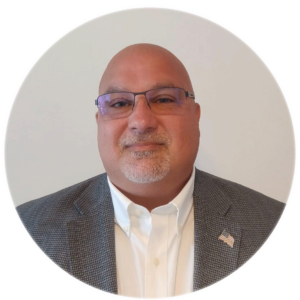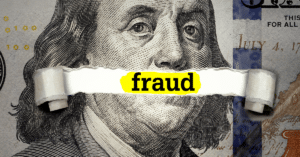Imagine this scenario: you’re hard at work in your healthcare role when you notice something that doesn’t feel quite right. Perhaps it’s an unusual billing pattern or a procedure that just seems unnecessary or unethical. You could be witnessing healthcare fraud.
Not only does reporting such fraud help maintain the integrity of the healthcare system, but it could also potentially reward you for doing the right thing. In this guide, we’ll walk you through the steps to file a whistleblower claim, ensuring you know how to report healthcare fraud effectively.
The Importance of Reporting Healthcare Fraud
Healthcare fraud is a serious issue that affects everyone from taxpayers to patients. It involves deceptive practices that result in unnecessary costs to healthcare programs funded by taxpayer dollars. By understanding the whistleblower claim process, you play a crucial role in safeguarding these funds and ensuring they are used appropriately to benefit patients.
Reporting healthcare fraud isn’t just about doing the right thing; it can also be financially rewarding. If your whistleblower case is successful, you could earn up to 30% of the recovered funds by the government. This not only incentivizes ethical behavior, but also helps maintain a transparent healthcare system.
How to Report Healthcare Fraud
The following comprehensive guide for efficiently and effectively reporting healthcare fraud is crafted to lead you through the process, ensuring your claim is well-documented and submitted in accordance with legal standards.
By adhering to this guide, you not only contribute to safeguarding the integrity of the healthcare system, but may also receive a significant financial reward if the fraud is confirmed and funds are recovered. Let’s explore the specific actions required to responsibly report any suspicious activities you might encounter.
1. Identifying Potential Fraud
The first step in reporting healthcare fraud is to recognize the signs. Common examples of healthcare fraud include upcoding, double billing, and billing for services not rendered. But what exactly should you look out for?
- Red Flags: If you notice billing for procedures that were not performed or see repeated patterns of overbilling, these could be indicators of healthcare fraud.
- Dubious Practices: Be cautious of practices like routine waiver of coinsurance payments or kickbacks for patient referrals, as they may violate federal law.
Even if you’re not 100% certain whether an action constitutes fraud, it’s wise to document your observations and gather additional information. Being proactive can make a difference in building a strong case later on.
2. Gathering and Documenting Evidence
Once you’ve identified potential fraud, the next step is to gather evidence to support your claim. Documentation is key in strengthening your whistleblower case.
- Types of Evidence: Collect emails, voicemails, billing statements, medical records, and any other documents that provide context to the fraudulent activities.
- Organize Your Findings: Ensure that your evidence is well-organized and clearly labeled. This will help when presenting your case to a whistleblower attorney.
- Stay Within Ethical Boundaries: Only collect evidence that passes through you during your normal work activities. Be careful not to purloin documents.
3. Choosing the Right Whistleblower Attorney
A knowledgeable whistleblower attorney is invaluable when navigating the complexities of a healthcare fraud case. Once you have identified potential fraud and gathered evidence, it’s time to consult an expert.
- Consultation: Attorneys like those at DJO offer free, confidential case reviews to assess the severity of the fraud. They will help identify any additional evidence needed and guide you through the process.
- Legal Guidance: Your attorney will be your advocate, working with you from filing your claim to coordinating with government agencies.
4. Officially Filing the Claim
With your healthcare fraud evidence in hand and a trusted whistleblower attorney by your side, you’re ready to officially file your claim.
- Building Your Case: Your attorney will help build a compelling case, detailing the fraudulent activities and their implications.
- Filing the Lawsuit: The attorney works with the government to file a lawsuit on your behalf. The timeline may vary, but patience is crucial.
If your case is successful, you could potentially earn a whistleblower reward of up to 30% of the recovered funds. This reward can be significant, sometimes amounting to millions of dollars just for speaking out against fraud.
Report Healthcare Fraud to Uphold Integrity and Earn Rewards
Taking these steps is essential in reporting healthcare fraud and contributing to a strong case. Your actions not only promote justice and transparency, but also uphold the integrity of the healthcare system.
If you have any questions or suspect a situation at work might constitute healthcare fraud, don’t hesitate to contact DJO for guidance. Our team of whistleblower experts is here to support you at every step of the journey. Remember, you don’t pay anything unless we win your case!

authored by Christopher J. Piacentile
Director of Investigations DJO Whistleblower Law Group


